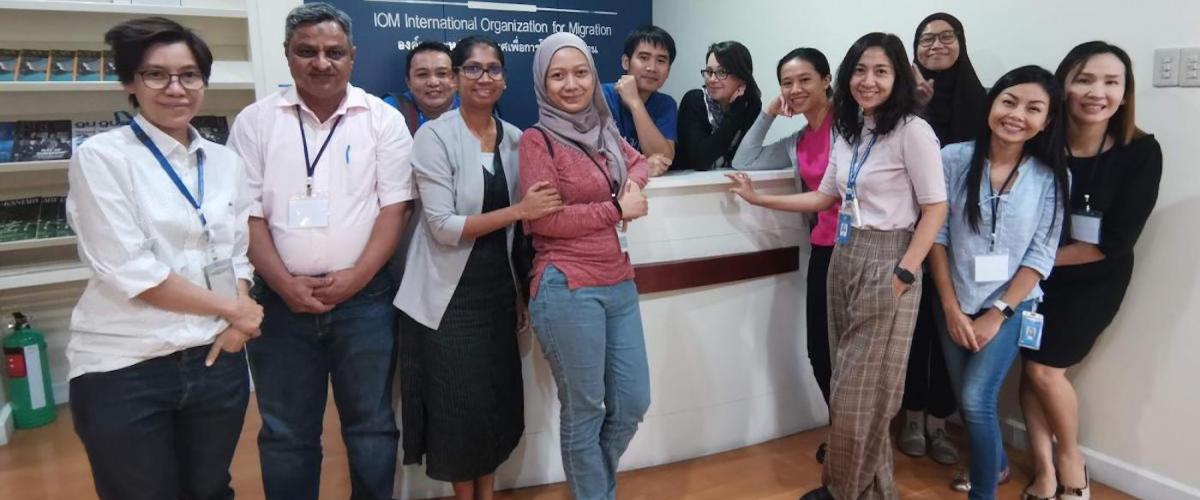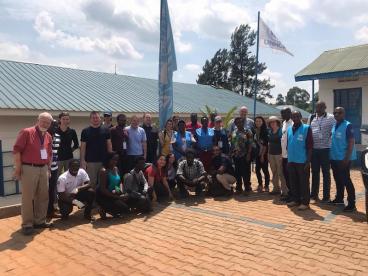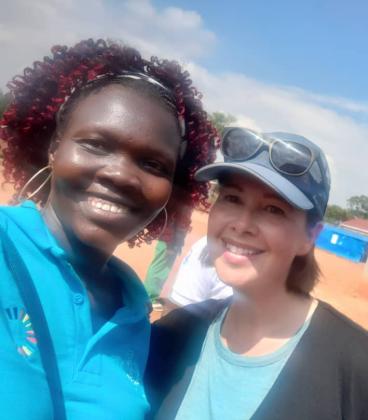Global Health Scholar: Shanna Miko
The CGHSR Scholars Program provides hands-on training at international research sites to University of Minnesota students through a guided mentorship program.
Two recipients of the CGHSR Scholars award for 2019 - 2020 are currently being supported through the program for a year of international research at partner institutions. One of our scholars this year, Shanna Miko, is the inaugural recipient of the CGHSR Scholars Program in Refugee and Population Health and has devoted her year to work with the UN Agency for Migration (International Organization for Migration (UN-IOM)) in Kampala, Uganda under the mentorship of Dr. Sarah Hoffman with the University of Minnesota's School of Nursing. In this article, she shares how her experience is going so far and briefs us on her current projects as a CGHSR Scholar.
Please tell us a little bit about your projects.
I am currently completing two capacity building projects supported by the University of Minnesota, the Centers for Disease Control and Prevention (CDC), and the UN-IOM. First, working alongside UN-IOM nurses in Kampala, I am developing a practice manual to standardize and support the activities of nurses in the transit center. Nursing responsibilities include health surveillance, presumptive treatment, and education of applicants (refugees and migrants) scheduled to travel to the U.S. Second, we are developing a health and hygiene curriculum to support the education delivered to applicants while in the transit center to best prepare them for healthy habits in the U.S. These projects not only improve the health and well-being of resettling applicants, but also support the World Health Organization's theme for 2020 as the Year of the Nurse and Midwife.
Since you began in October, what have you learned about refugee and population health that surprised you?
Since becoming a CGHSR Scholar I have visited Amman, Jordan; Bangkok, Thailand; Nairobi, Kenya; several refugee settlements; and lived in Kampala, Uganda. I have been most amazed by the number of organizations all working together with unique roles to manage the growing population of displaced persons. I have also learned more about climate migration and the impacts on the world economy. Refugee settlements are not only home to those affected by war but also climate crises.
How have your mentors and UN-IOM staff supported you?
I am fortunate to have a supportive mentor/advisor in Sarah Hoffman. Her experience in migration and health outcomes has been an invaluable resource in developing these projects and in the formation of my doctoral thesis. The CDC, CGHSR, and UN-IOM team members, including Erin Mann, Susan Dicker, Alex Klosovsky, Bill Stauffer and others—especially the IOM nursing and medical staff—have ensured that I have access to everything I need to be successful. The nurses that I have met and worked with have welcomed me everyday and have played an important role in identifying their needs and providing feedback for the ongoing work. Weekly and monthly team meetings allow me to keep everyone in the loop and also receive advice and support from the global health professionals.
What are you enjoying most about living in Kampala, Uganda?
Kampala is a wonderful city full of so much life and activity. There is always something to do or someone to meet from locals to expats. While the Luganda language has been difficult for me to learn, everyone I have met has been warm and welcoming to this muzungu! I am especially in love with Uganda and the way it has opened its borders to refugees. Uganda is known for their progressive policies on refugee rights.
—Shanna Miko, DNP Candidate Health Innovation and Leadership, School of Nursing
The CGHSR Scholars Program in Refugee and Population Health creates an opportunity for a University of Minnesota doctoral student to pursue projects that work towards solutions to one of the world's largest global health concerns—migration. According to the United Nations, "there are over 258 million migrants around the world living outside their country of birth." This number increases demand on healthcare resources for both migrants and host communities, as well as international agencies. To support this need, CGHSR also works through our UN Migration Agency Project that trains health providers abroad to help ensure that US-bound refugees receive proper health screening, arrive safely and have a more successful community integration.
CGHSR Scholars Program
Discover more about our Scholars Program that provides hands-on training at international research sites to University of Minnesota students through a guided mentorship program.


